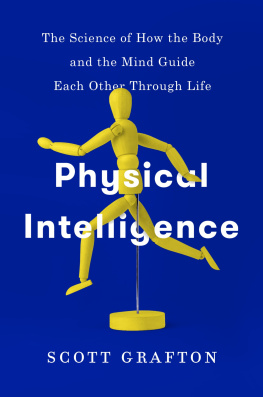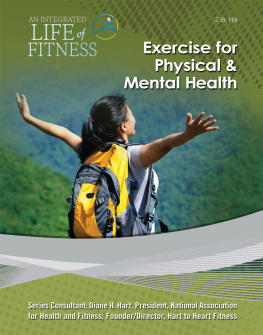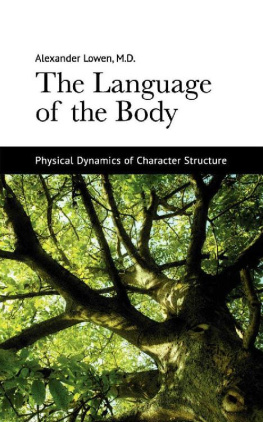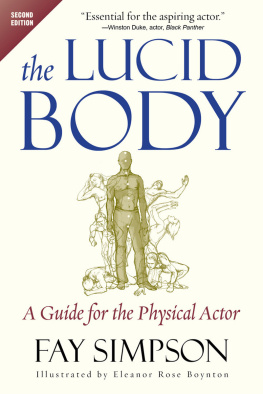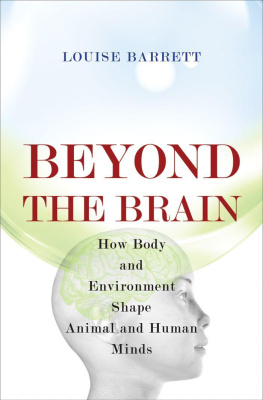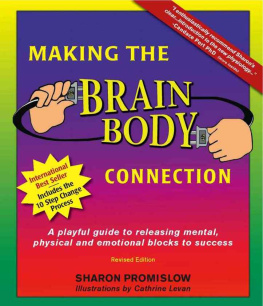Scott Grafton - Physical intelligence : how the brain guides the body through the physical world
Here you can read online Scott Grafton - Physical intelligence : how the brain guides the body through the physical world full text of the book (entire story) in english for free. Download pdf and epub, get meaning, cover and reviews about this ebook. year: 2020, publisher: Pantheon Books, genre: Romance novel. Description of the work, (preface) as well as reviews are available. Best literature library LitArk.com created for fans of good reading and offers a wide selection of genres:
Romance novel
Science fiction
Adventure
Detective
Science
History
Home and family
Prose
Art
Politics
Computer
Non-fiction
Religion
Business
Children
Humor
Choose a favorite category and find really read worthwhile books. Enjoy immersion in the world of imagination, feel the emotions of the characters or learn something new for yourself, make an fascinating discovery.
- Book:Physical intelligence : how the brain guides the body through the physical world
- Author:
- Publisher:Pantheon Books
- Genre:
- Year:2020
- Rating:5 / 5
- Favourites:Add to favourites
- Your mark:
- 100
- 1
- 2
- 3
- 4
- 5
Physical intelligence : how the brain guides the body through the physical world: summary, description and annotation
We offer to read an annotation, description, summary or preface (depends on what the author of the book "Physical intelligence : how the brain guides the body through the physical world" wrote himself). If you haven't found the necessary information about the book — write in the comments, we will try to find it.
Scott Grafton: author's other books
Who wrote Physical intelligence : how the brain guides the body through the physical world? Find out the surname, the name of the author of the book and a list of all author's works by series.
Physical intelligence : how the brain guides the body through the physical world — read online for free the complete book (whole text) full work
Below is the text of the book, divided by pages. System saving the place of the last page read, allows you to conveniently read the book "Physical intelligence : how the brain guides the body through the physical world" online for free, without having to search again every time where you left off. Put a bookmark, and you can go to the page where you finished reading at any time.
Font size:
Interval:
Bookmark:
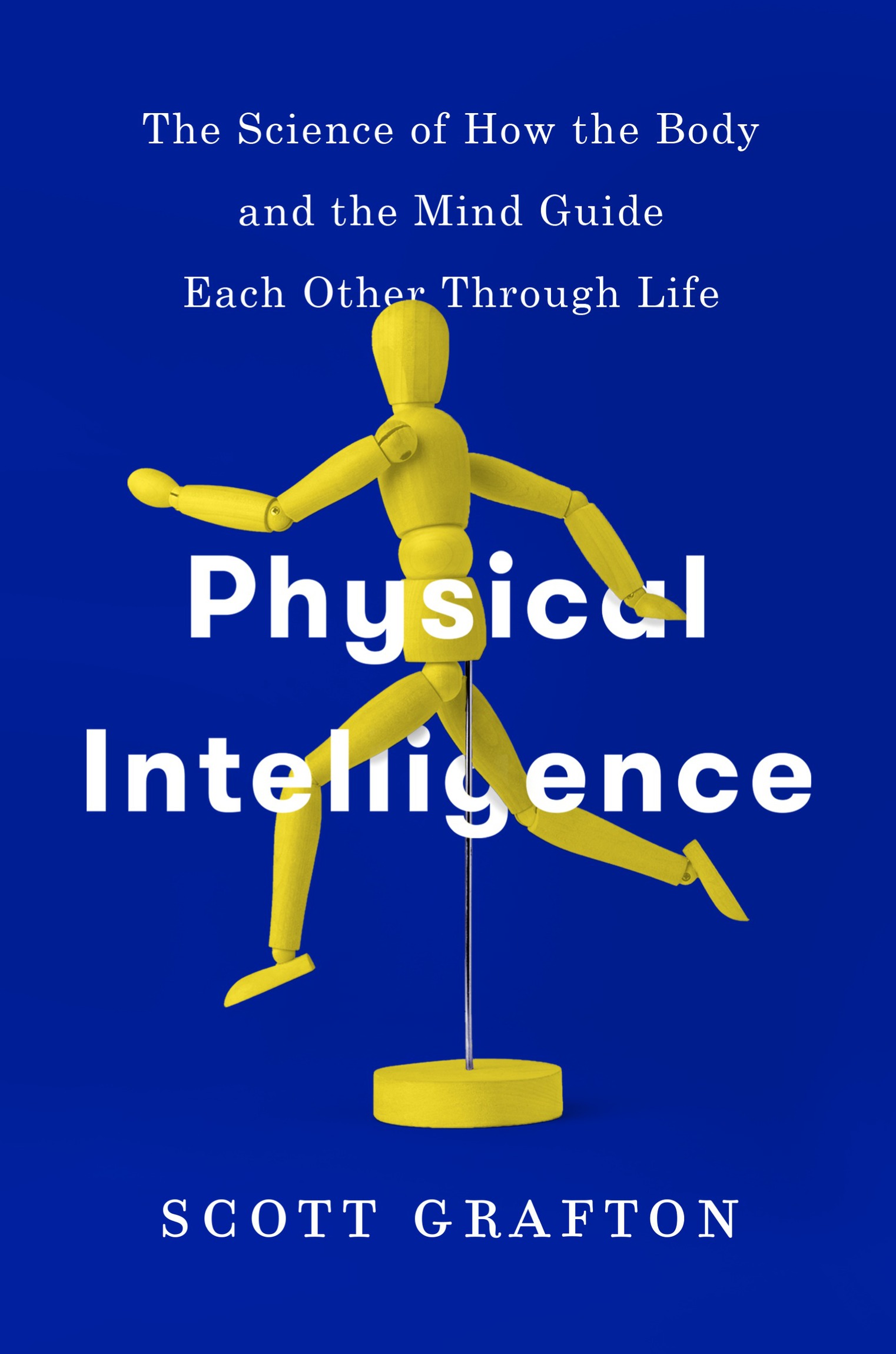
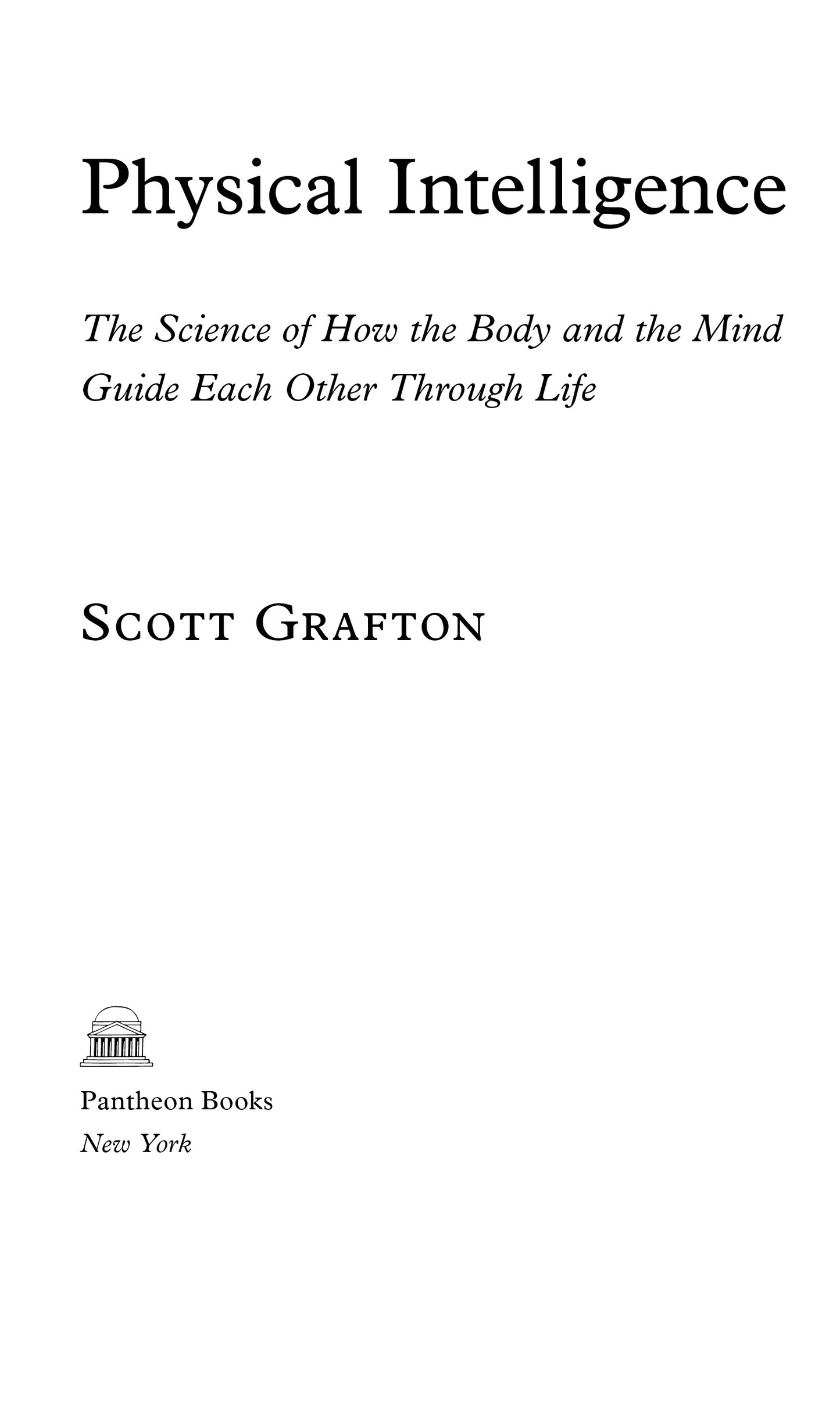
Copyright 2020 by Scott Grafton
All rights reserved. Published in the United States by Pantheon Books, a division of Penguin Random House LLC, New York, and distributed in Canada by Penguin Random House Canada Limited, Toronto.
Pantheon Books and colophon are registered trademarks of Penguin Random House LLC.
Library of Congress Cataloging-in-Publication Data
Name: Grafton, Scott T., author.
Title: Physical intelligence : the science of how the body and the mind guide each other through life / Scott Grafton.
Description: First Edition. New York : Pantheon Books, 2020. Includes bibliographical references and index.
Identifiers: LCCN 2019018374. ISBN 9781524747329 (hardcover : alk. paper). ISBN 9781524747312 (ebook).
Subjects: LCSH: Mind and body. Intellect. Thought and thinking.
Classification: LCC BF151 .G73 2020 | DDC 153dc23 | LC record available at lccn.loc.gov/2019018374
Ebook ISBN9781524747312
www.pantheonbooks.com
Cover image by edward way/500px/Getty Images
Cover design by Linda Huang
v5.4
ep
To Kim. For coming along, even when the shortcuts werent.
Danger keeps you on your toes.
JIM BRIDWELL
H OW DO YOU decide if you can drive through a snowstorm? How high are you willing to climb up a ladder to change a lightbulb? Can you prepare a dinner party for eight? When was the last time you discovered a shortcut through a forest?
For all these challenges, there is only one way to find out. A person needs to devote some time, energy, and physical engagement. Smart talk, texting, virtual goggles, reading, and rationalizing wont get the job done. The hands have to be on the wheel of the car to learn the feel of slipping tires. The feet need to be balanced on the ladder rungs to detect the tipsiness. The cook has to already know how to chop, fry, and combine four complicated recipes so they are all finished by a certain time. Best of all, finding a shortcut through the forest demands vigilance, courage, and the ability to keep ones wits, particularly at that moment of self-doubt when the journey seems more like a longcut than a shortcut.
Skills such as these are informed by physical intelligence: the components of the mind that allow anyone to engage with and change the world. Inside the brain there is no single module or bit of tissue that makes this possible. Instead, the action-prone mind draws on a multiplicity of capabilities. This book is about these amazing mental operations, how they were discovered, and how they continue to be studied today. Some are almost primordial in their simplicity. How come you dont walk into walls or off of cliff edges? Others are quite subtle. When you take on a new do-it-yourself project, how much of your problem-solving relies on old habits, winging it, or careful reasoning?
Our psychological intuition about how the brain works inevitably places verbal thought and all the stuff we can talk about, such as our emotions, at the top of the heap. Physical intelligence, which is largely inaccessible to conscious introspection, is treated as a lower form of intelligence, something to be tucked beneath the verbal and largely ignored. This book makes the case that physical intelligence is much more. It is foundational, a kind of knowing that frames much of what the mind spends its time engaged in. Indeed, the very fact that so much of physical intelligence can be performed beyond consciousness is the very design feature that frees a persons thoughts so he can spend his day thinking about social affairs, work, and the world of ideas. Under all the verbal chatter of the mind, much if not most of what the brain is actually dealing with is the raw physicality of being alive.
For many of my colleagues who study the mind, the very notion that physical action also requires some intelligence draws a blank stare. They focus on thinking and perceiving. Other than ears and eyeballs, the body is largely irrelevant for their kind of science. However, to study a mind without a body ignores some of the greatest pleasures of being alive: experiencing the world directly, as we perform and create. My patients point this out to me time and again. As they lose various physical capacities they also lose bits of their deepest sense of self. One of my patients was a farmer in south Georgia with advancing Parkinsons disease. There came a sad day when I had to take his drivers license away. Driving has a way of projecting a person into the physical world, providing a dizzying sense of freedom. For good reason, then, the farmer was severely depressed when he lost his privilege. However, he was not to be deterred. Denied one of his greatest joys, he found an intimidating but satisfactory substitute: he could still drive his oversized bulldozer around his farm. For him, thinking, philosophizing, and reasoning would never offset the sheer joy of getting out and about in his vehicle. Even Stephen Hawking yearned for action. He once commented, Obviously, because of my disability, I need assistance. But I have always tried to overcome the limitations of my condition and lead as full a life as possible. I have traveled the world, from the Antarctic to zero gravity.
The hidden nature of physical intelligence poses a problem for the scientist. How can these capacities be exposed for what they are? To a certain degree, all of us are constantly searching for them. We are drawn like moths to a flame whenever we witness physical brilliance, when brain, mind, and body operate together with singular grace, as is sometimes evident in sports, dance, craft, or music. However, a scientist focusing only on superb physical talent can be led astray. It would be as if she were trying to understand language by only studying winners of spelling bees. All of our physical intelligence, not just that of outliers, needs to be explained. Look closely at the barista, the kid playing hopscotch, or the floor mopper and you will soon begin to notice physical brilliance everywhere. To show how and why this brilliance exists, I will dwell on some of my favorite experiments across a wide range of scientific disciplines, including the study of normal infant development, intracranial neurophysiology, robotics, brain scanning, and clinical neurology.
Long ago I discovered that some of the most important components of physical intelligence, the ones that are generalizable and relevant for all of us, are laid bare when one is alone in the natural world, particularly in the wilderness. Venturing into wild places requires enormous ingenuity and resolve. It is the primordial world we originated from as a species, and thus it makes sense that the cognitive capacities that are of greatest value for goal-oriented behavior should come to the forefront there. I make a yearly trip into the wilderness alone. I go to the Sierra Nevada, but one could imagine a similar trip in Alaska, the Rockies, the Cascades, the Okefenokee Swamp, or the great deciduous forests of Appalachia. This book is motivated by one of my trips and some of the capacities of physical intelligence that determined my fate along the way.
A good wilderness trip needs three things for the properties of physical intelligence to be evident. The first is obscurity. Although I had left a map and a detailed itinerary with my wife, I changed my route on the second day of my trip. If anyone went looking for me using the map I had given her, she would probably scour an area that was more than twenty miles away, beyond two glacial divides. Mobile phones dont work in these parts. And the Park Service is so understaffed, the likelihood of being rescued in a crisis is abysmally low. Without any of these lifelines, a relatively simple hiking trip can suddenly become a profoundly intense and complex experience. The second feature is solitude. On such a trip, there is none of the wonderful chatter and distraction that dominates the closeness and pleasure of an outing with family and friends. Without these entertaining social connections, a solo trip results in an utterly different kind of experience. It is not a lonely one. Rather, the solitude provides time for reflection and an opportunity to examine the kind of intelligence that informed human action as our species evolved. In addition, a trip alone completely changes the stakes and perceived risk. There is no confusion about responsibility. The traveler owns all his or her decisions. Roughness is the third feature. The familiar world is stripped bare; the setting is primordial. The landscape is open and stretches forever, with barely a trace of human influence. For more than 1.3 million years of evolutionary history, this was the ordinary world. There were no level sidewalks, warm houses, or high-rise luxuries. Nothing mitigated risk, eliminated hazards, or minimized effort. Our ancestors evolved in a world that was nothing but wilderness. This landscape endowed our species with remarkable ways of seeing, interpreting, and acting in challenging environs. With that in mind, when I take what are relatively hazardous and unknown explorations into the mountains, I get to experience a very crude simulation of what being alive was like long ago. Survival is paramount and one is ever mindful of it.
Font size:
Interval:
Bookmark:
Similar books «Physical intelligence : how the brain guides the body through the physical world»
Look at similar books to Physical intelligence : how the brain guides the body through the physical world. We have selected literature similar in name and meaning in the hope of providing readers with more options to find new, interesting, not yet read works.
Discussion, reviews of the book Physical intelligence : how the brain guides the body through the physical world and just readers' own opinions. Leave your comments, write what you think about the work, its meaning or the main characters. Specify what exactly you liked and what you didn't like, and why you think so.

